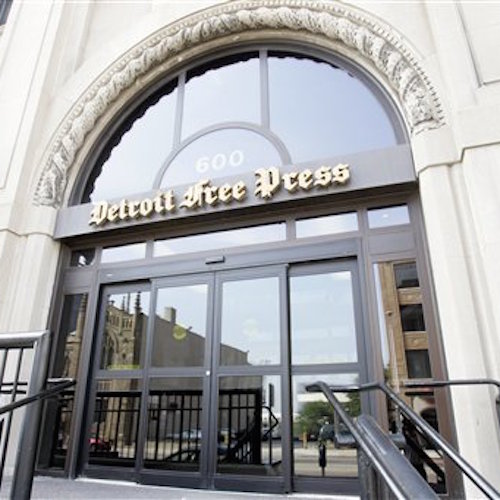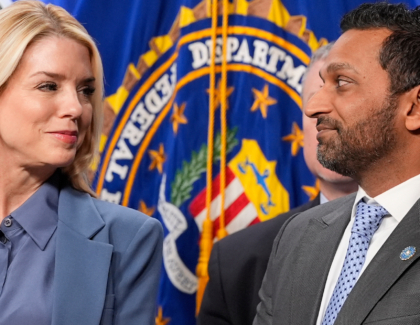Sign up for the daily CJR newsletter.
In late August, Gannett announced that it was offering a voluntary buyout plan to staffers 55 and over with at least 15 years service, part of an effort to “better align our structure to become a next generation media company.” Eligible employees have 45 days to take the offer, which reportedly amounts to about a year’s pay for a 25-year veteran. So sometime in mid-October, expect to hear about departures of veterans from USA Today, the Arizona Republic, and other Gannett publications. It’s become a familiar, orderly ritual in the newspaper business.
But at one Gannett paper, the process surrounding these buyouts has been anything but smooth. When the Newspaper Guild representing employees of the Detroit Free Press tried to bargain over the terms of the deal, Gannett withdrew the offer within 24 hours. That turn of events has frustrated at least some staffers who would have qualified for the buyout and has sparked concern that, if the offer is not reinstated, the company will instead opt for layoffs to get the targeted cost savings. In the past, layoffs have been conducted in reverse order of seniority, affecting younger employees first.
Guild officials declined to discuss the situation in detail but did confirm the basic sequence of events.
“The Guild, as is our duty, raised questions about whether retiree health care would apply to folks taking the buyout and similar issues,” John Gallagher, president of the Newspaper Guild of Detroit and a Free Press reporter, wrote via email to CJR. “The company refused to meet on those issues and immediately withdrew the plan instead.”
Robert Huschka, the paper’s new executive editor, declined to comment. A representative for Michigan.com, which oversees business operations for the Free Press, referred inquiries to a Gannett spokesperson, who did not respond immediately. A different Gannett spokesperson contacted by CJR earlier in the week did not directly address questions about the events in Detroit.
It’s unclear at this point what will happen next. A report in Crain’s Detroit Business, which included some details on the buyout talks, noted that it is one of a pair of recent squabbles between the union and management, as both sides prepare for negotiations on a new contract. The current three-year contract expires in early 2016.
For the time being, frustration with the situation is apparent in interviews with newsroom staffers and in internal emails obtained by CJR between Guild officers and reporter Lori Brasier, a 23-year veteran at the paper and Guild member who qualified for the buyout offer. Brasier confirmed that the emails were hers but declined to discuss them.
“What you folks have now accomplished is this—those who want to leave will be forced to stay, while younger, new employees will soon be forced out,” Brasier wrote to Gallagher and two other Guild leaders on August 29, shortly after the offer was withdrawn. “How that benefits ANYBODY is beyond me. You can blame the company all you want, but if you had simply signed off… employees could have addressed the questions you mention … and made their own decisions. If the offer was so bad, we could have all walked away. Now we have no say in the matter. And for that, I remain angry. I am stuck, while Gannett employees around the nation are walking away with buyouts.”
The correspondence between Guild leaders and newsroom staffers, as well as limited public comments, frame the buyout deal as one episode in the broader relationship between union and management—but with differences of opinion about how to proceed.
“I sense that this decision was made in attempt to take a stand, in anticipation of contract negotiations later this year; in other words, to flex our muscle,” Brasier wrote in the August 29 email. “It was a bad calculation. And it made us weaker.”
In an email sent to Guild members at the Free Press and other local papers the same day, Lou Grieco, the Guild’s administrative officer, suggested that the frustration of staffers is exactly what the company is “counting on.”
“That way,” he wrote, “they hope to get us [on] a very slippery slope toward ‘standard’ benefits (with non-organized newsrooms.) The Guild will protect the right and duty to bargain.”
Only about 10 percent of Gannett’s labor force is represented by a union, according to the most recent report filed with the Securities and Exchange Commission. That figure includes employees at broadcast properties, which were spun off this year into a separate company.
In an email to Brasier obtained by CJR, Gallagher noted that when Gannett announced its plan, “it demanded that the Guild sign off on it without meeting us to discuss it and without providing documents outlining the plan or answering some of our basic questions…” He listed some of those questions, which included whether the employees who accept the offer would be free to work for other employers without affecting their salary continuation benefit. Gallagher also confirmed the authenticity of the email exchange to CJR.
Gallagher also stated in the email that although the company has met with the Guild to discuss questions on all previous early retirement programs, it did not do so in this case. “We are consulting with our attorney now to see how to follow this up,” he wrote.
Has America ever needed a media defender more than now? Help us by joining CJR today.







